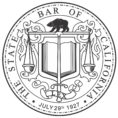How to File a Wrongful Death Lawsuit

Few things in life are as traumatic as losing someone dear to you in death. Sadly, it can be even more heartbreaking when your loved one’s death occurred due to another person’s negligent behavior or intentional act.
Just as personal injury victims have the legal right to pursue a personal injury claim and recover financial compensation for their pain and suffering, certain surviving family members can file a wrongful death claim when an accident proves fatal. A settlement from a wrongful death lawsuit can help a grieving family to get back on their feet after their loss.
What is a Wrongful Death Lawsuit?
A wrongful death lawsuit is a legal claim that may be filed by specific immediate family members of the deceased, or the estate representative, against a person or entity who could be held responsible for the death of their loved one. The lawsuit enables surviving family members to recover monetary damages for their loss.
To file a successful wrongful death claim, you must prove that:
- A person died
- A person or entity was negligent or intentionally caused harm
- That party’s negligent or intentional actions were the direct cause of your loved one’s death
- Surviving relatives suffered damages due to the death
- A personal representative of the deceased person’s estate has been appointed
By establishing such facts, surviving family members or the estate of the deceased can bring a wrongful death lawsuit against the liable parties. Compensation may be awarded for the untimely death in court. At times, an out-of-court settlement could be reached with those responsible.
Who Can File a Wrongful Death Lawsuit in California?
Not just anyone can file a wrongful death lawsuit. In most cases, this right is reserved for immediate family members who were financially dependent on the deceased. Such ones bear the brunt of the impact of the victim’s death.
In California, those eligible to bring a wrongful death suit include:
- The surviving spouse or registered domestic partner of the deceased person
- The deceased’s surviving child or children
- Dependent minors living in the household
- The surviving parents or other next of kin of the deceased person
At times, multiple people are eligible to file a wrongful death lawsuit. In an effort to simplify the proceedings, claimants must join together and elect a personal representative of the decedent’s estate to file a single action on their collective behalf.
Those Liable to Be Sued for Wrongful Death
A wrongful death lawsuit can be brought against nearly any individual or entity whose negligence or wrongful act caused the death of another person.
Common defendants in a wrongful death claim are:
- A driver who caused a fatal car accident
- A company who designed or manufactured a defective product
- A company who failed to adequately warn of the risks or side effects of their products
- An engineer or builder of faulty roads, highways, or bridges
- A government agency that did not properly warn about dangerous road hazards
- A company or person who served alcohol to an impaired driver who then caused a deadly accident
- A doctor or other healthcare provider who committed medical malpractice
- An employer of an individual who caused the wrongful death while on the job
You will find it advantageous to consult an experienced wrongful death attorney. He or she can help you establish the facts of the wrongful death case and identify all parties potentially liable for your loved one’s death.
About the California Wrongful Death Statute of Limitations
If you believe your family member’s death was due to someone’s negligence or reckless act, you must not lose time in building and filing your claim.
Under the California wrongful death statute of limitations, you have just 2 years from the victim’s death to file a claim or lawsuit in most situations. If the liable party is a government entity though, a 6-month time limit to file an “administrative claim” may instead apply to your case. No matter the details, if you fail to file a wrongful death claim within time allowed, you could lose your right to pursue damages for your losses.
Additionally, depending on your exact circumstances, other statutes of limitations could apply to your wrongful death case. An experienced attorney can help you proceed with your claim, ensuring that no important deadlines are missed.
Steps of a Wrongful Death Claim in California
Wrongful death cases can be emotional, complicated, and time-sensitive. Grieving family members are in no position to handle such a legal claim on their own since doing so requires taking each of the following steps with care and expediency.
Instead, hire an understanding California wrongful death lawyer. Most successful wrongful death lawsuits are handled by knowledgeable attorneys. Your lawyer can help you prepare your wrongful death claim in accordance with California state laws and time limits.
Having an adept and empathetic wrongful death lawyer on your side will also ensure your peace of mind as you move forward with your claim. Because when you hire a qualified attorney to handle your wrongful death lawsuit, he or she will do the legal legwork so that you can focus on your family.
Investigating the circumstances of your loved one’s death
In order to successfully resolve a wrongful death claim, you will need to gather evidence proving that someone else’s actions caused the death of your family member.
Contributing evidence may include:
- The official police report from the fatal accident
- Eyewitness statements
- Security camera footage from the scene of the accident
- The extent of vehicle or property damage
- Accident reports, medical records, the coroner’s report, and the death certificate
A preliminary investigation into the events that led to the decedent’s death will help your attorney establish the certainties of the case. With this evidence in hand, he or she will have a solid foundation on which to build your wrongful death claim.
Initiating wrongful death settlement negotiations
In many cases, a wrongful death settlement agreement can be reached with the at-fault party or their insurance company during the pre-litigation phase, before a lawsuit is filed. Plaintiffs often prefer to give settlement negotiations a thorough try before going all the way to court.
Even though out-of-court negotiations have their benefits, the process can be lengthy and frustrating since the emotional tolls of a wrongful death trial are especially high. Therefore, you need an experienced, level-headed lawyer working for you.
To begin negotiations, your attorney will write a demand letter to the defendant and his or her insurance company. The letter will detail the circumstances of the death, who is believed to have caused it, and how the evidence points to the case qualifying as wrongful death.
The demand will request compensation for all relevant losses, such as:
- Loss of anticipated financial support: Certain survivors who relied on the financial support of the deceased may be able to recover the lost income he or she provided.
- Loss of the value of household services: You may now need to hire someone to take care of the household tasks that your loved one had performed. You can request compensation for these costs.
- Loss of companionship: While it can be difficult to calculate a monetary value for such intangible losses, it is important for your future well-being to include losses of this kind in your settlement agreement.
- Expenses associated with wrongful death: Sadly, a death generally results in a significant amount of expense. You may be eligible to recover compensation for medical bills, funeral and burial expenses, and other wrongful death damages.
Each wrongful death claim is unique. The general goal in each case, though, is to reach a settlement that will adequately provide for your family’s immediate and long-term needs while also respecting the legacy of the deceased.
Your lawyer will help you to evaluate all settlement offers and make any counter offers if necessary. If a reasonable settlement agreement cannot be reached, you can then choose to pursue a wrongful death lawsuit.
Filing a wrongful death lawsuit
If the defendant or insurer refuses to come to a settlement agreement, your lawyer will file a complaint in civil court for wrongful death.
The complaint will outline the details of the lawsuit. It will include the date and time of death, what caused it, and the amount of compensation being sought. The complaint will also cover the established evidence and laws that apply to the case.
Once the defendant has received a copy of the complaint, he or she has 30 days to file a response with the court, under California law.
Conducting the litigation and discovery phase
The pre-trial phase of a wrongful death lawsuit includes the fact-finding or discovery period. This allows time for each side to collect as much information about the case as possible.
In order to build the wrongful death case, your lawyer may take such steps as:
- Requesting important documents: It is beneficial to see a copy of the defendant’s insurance policy and other like documents. Such records will show how much potential compensation is available in the case.
- Questioning the defendant in writing: Questions may be submitted that must be answered in writing, while under oath.
- Conducting a deposition: At a deposition hearing your lawyer may further question the defendant and others about the wrongful death. Depositions are given under oath, recorded, and possibly used as evidence at trial.
- Interviewing expert witnesses: Depending on the circumstances of the case, the testimony of an expert witness can be invaluable in successfully resolving your lawsuit. For instance, in a claim involving medical malpractice, a medical expert with respected credentials may be called in. Or an accident reconstruction expert may be asked to help the jury visualize what happened based on the known evidence of a car accident or slip-and-fall.
The intention of the discovery phase is to solidly establish the facts of the case, ensuring that there are no surprises in the courtroom. This period may take several weeks to several months, depending on the conditions and complexities of the case.
Attending court mediation if necessary
Attempting to resolve the wrongful death dispute without going to trial, the judge might require a mediation conference. The purpose of mediation is to open a dialogue between the parties in order to resolve the wrongful death claim.
Your wrongful death lawyer will be able to thoroughly prepare you for mediation and help you to evaluate any settlement offers.
If an agreement is reached and signed, it is legally binding on all parties.
Attending the wrongful death trial
If mediation and settlement negotiations fail, the trial stage of the wrongful death lawsuit will begin.
At trial, each side has the opportunity to present evidence, call witnesses, and provide arguments. Further, each party may cross-examine the other side’s witnesses.
At the end of the trial, the jury will deliberate and give their verdict. If you are unhappy with the outcome, you may be able to appeal the decision to a higher court. Your lawyers will evaluate the costs and benefits of such action and discuss with you whether or not appealing the verdict would be advisable.
Distributing the monetary award when paid out
When you win the wrongful death case, the defendant has limited time during which to pay the amount of money due to you. Plaintiffs in wrongful death claims can often expect to see their compensation paid out within 30 days of the jury verdict or settlement agreement.
Contact a California Wrongful Death Attorney for Help
Your first step in filing a wrongful death lawsuit should be, of course, retaining a wrongful death lawyer. With all the evidence and paperwork that must all be prepared accurately before time runs out, you don’t want to handle a legal claim on your own.
If you are dealing with the tragic loss of a loved one due to the negligence or intentional act of another person, you need support that comes with both experience and compassion. The wrongful death lawyers at Harker Injury Law can provide what you need at this trying time.
Please click here or call 760-INJURED to schedule a free consultation. A member of our legal team is standing by to help. We want to hear your story.










